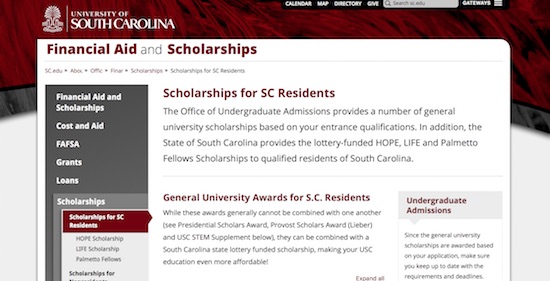
In the last article, we talked about thriving in your first year of community college. If you missed that, read it here.
At the beginning of your sophomore year of junior college, you should take stock of what you’ve accomplished, and begin to map your transition out of the institution. By this time, you should have an excellent academic history, attested to by grades and recommendations from faculty. You are halfway finished, and whether you want to enter the workforce, or continue on to university, you will naturally be proud of what you’ve done.
If you plan to finish up, and start making money, it is at this time you should be reaching out to employers. There are a few things every man should do at this time.
- Go get fitted for a decent suit. This means dark blue or black. Buy a white shirt and a tie, preferably a “club tie” which is arty, but not loud. Don’t buy any extras at the department store, but do not get the cheapest suit on offer, either. Make sure the suit is altered and comfortable before you leave the store.
- Start a brand new email address at yahoo, google or outlook. The username should be some combination of your first name and your last name. The email address you use to talk to your buddies, which reads “whitepower88” or “devilschild666” shouldn’t be discarded, but you should keep professional correspondence in a separate mailbox. Serious people compartmentalize, and a professional demeanor goes a long way in the hiring process.
- Crank out a résumé. There are people at your school who are paid to help you with this, and you should hunt them down and make them earn their salaries. It’s OK that you don’t have much in the way of job history. Nobody expects you to.
- Approach a few select faculty members and ask if they’ll write you letters of recommendation. If you’ve taken Brother Boxer’s advice, and have been punctual and professional during class, they should be glad to do this.
And so we’ll leave our brothers in the trades to go make big money, and the rest of us are now ready to concentrate on getting into university. Some of the general tips for the future degree holders are similar. For instance, while the future electricians are contacting union reps and contractors about possible jobs, the future academics should be looking at big schools to transfer to. There are a few things you brothers might need for your applications, and now is the time to get these things in order.
- A writing sample. This should be 5-10 pages long, double spaced, with proper citations (MLA, APA, Chicago, etc.) Get the best paper you wrote in your composition class, and clean it up. It will do.
- Letters of recommendation. Approach three instructors and ask them to write one up. Do this early, because many faculty members are notorious about forgetting to do this. Get copies for your own records.
- A cvrricvlvm vitae. Commonly called a “cv,” this is like a résumé, and it lists your academic accomplishments. If you got a work-study job in the library, that’s listed. Make sure you include the scholarships you’ve already earned. Also, it’s helpful to list out all the original work you’ve presented in public. Remember when Dr. Boxer made you get up in front of the class and explain Cauchy’s mean value theorem, with an example? That’s a presentation. List the title and date. Put some references at the end (at least, the people who wrote your letters of recommendation.)
Your applications should go out around Christmas break, so you have three or four months in your sophomore year to get all this crap together. Many schools will charge application fees. Be smart, and ask them to waive this. Some schools have a protocol for doing such a thing, and some don’t. If you don’t see instructions, send an email to an admissions officer, politely requesting a waiver. You’re a poor community college student, after all.
Nearly every big school has a “general scholarship application.” Fill this crap out, at every school you’re applying to. You should already have experience asking for funding at community college, so it’s just more of the same. And again, don’t feel ashamed for asking for scholarships. Alumni from all the big schools donate to the scholarship funds. If you don’t use the money we send, the fags in the administration get to waste it on booze and hookers. Do us a favor, and take our money.

You will get accepted to multiple universities, but the scholarships you earn will vary widely. In nearly every case, your decision about where to go to school should be entirely based on who is giving you the most money. Ignore the supposed “prestige” of a diploma from the big Catholic or Jewish university. Nearly all baccalaureate degrees are equal, and if the local state university is giving you a cheaper ride, you ought to take it.
The only exception I can think of is perhaps an Ivy League school. If you have the means and opportunity to go to Yale, you ought to take it, because you’ll make contacts at those dopey skull and bones parties, that will leapfrog you into a gold-collar job at graduation.
At some point you will graduate from community college, and those of you who are going on to university will (if you’ve followed all my advice) be admitted as juniors, with a generous funding package that minimizes your expenses. By the time you hit the university campus, you should be self-aware enough to know exactly what you want to concentrate on, and much of my advice to you here is more-or-less identical to what I told you about junior college. Declare your major, note your program and catalog year.
Your major will, of course, depend upon your plans for a career. What sort of career you want should be based on the decision you made years earlier, when you figured out what you were good at, and what you enjoyed. Many careers have straightforward concentrations. A job as an engineer requires an engineering degree.
Some careers do not have tightly associated degrees. Young men who want to be military officers often do well with degrees in history, philosophy, and English. They also benefit from doing ROTC while they’re on campus. I know this, because I had such a young man in my office once, and I had to call up the local U.S. Air Force detachment to get a handle on what sorts of degrees he’d find useful. That specific young man got through his officer’s training, and is doing well today.
I’ve interacted with employers, and I know the local HR drones find some degrees specifically not useful for real-world jobs. Some of these include women’s studies, black studies, and sociology. Students who come out of these programs are seen, for better or worse, as potential troublemakers who have an “activist” mindset, which is not conducive to an efficient workplace.
One last piece of advice is to make yourself well-rounded. If you’re majoring in English, then it is a great idea to minor in something like chemistry or physics. If you’re majoring in physics, then a minor in history or philosophy is a good idea. Future employers will get your transcripts, and one which shows a wide breadth of competence is always preferable to a narrow focus on one specific discipline.
Foster good professional relationships with faculty members. Take only those classes you need, and do as well as you can in every class. You will likely notice the younger kids, all starry eyed, entering as freshmen. Wisely note their proclivity for time-wasting nonsense (frat parties, sex orgies, etc.) and their alcohol-fueled misbehavior. Be thankful that wasn’t you.
There is one thing that is especially important in a man’s junior and senior years. That is to use your professor’s office hours. Show up to these a couple of times a month, and let the guy know you’re actually reading and thinking about the material he’s covering in class. Doing this tends to magically inflate your grades, and will give you a much deeper understanding of what he’s talking about.
In the next article, we’ll be discussing the pros and cons of graduate and professional school.
3 thoughts on “Education: Part 3”